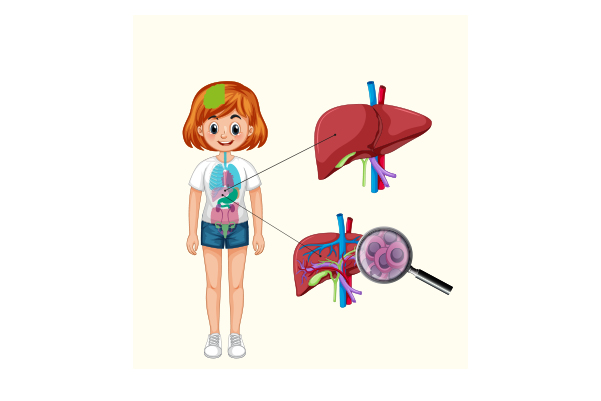
DM - Paediatric Hepatology
- 1 Colleges
Paediatric hepatologists deals with several conditions in children such as congenital abnormalities of the gastrointestinal tract.
The study, care and management of hepatobiliary conditions in children, that is, the treatment of disorders and diseases of the liver, gallbladder, biliary tree, pancreas and associated systems is called paediatric hepatology. Paediatric hepatologists deals with several conditions in children such as congenital abnormalities of the gastrointestinal tract, growth and nutritional requirements, nutritional assessment, breastfeeding issues, formula and complementary feeding, necrotizing enterocolitis, growth faltering, iron, minerals and other micronutrients deficiency, enteral nutritional support, refeeding syndrome, parenteral nutrition, intestinal failure, intestinal transplantation, eating disorders, food allergy, carbohydrate intolerance, obesity, gastrointestinal manifestations of cystic fibrosis, cystic fibrosis-associated liver disease, achalasia, acute gastroenteritis, gastro-oesophageal reflux, etc. As liver disorders in children are increasing and the nature and outcome of such ailments often turn out to be different from adults with similar conditions, the evolution of paediatric hepatology into a speciality of its own is necessary and has welcomed several advancements and research. Some of the notable developments include advances in the treatment of helicobacter pylori infection, increased understanding of the intestinal microbiome, genomics, use of machine learning in processing genomic data, studies into unique cells, mirnas as biomarkers in paediatric gastrointestinal disorders, molecular and genetic advances in early detection and prevention, targeted preventives and so on.
Doctor of medicine in paediatric hepatology is a course designed with the understanding of the importance of such a speciality. Children nowadays are more susceptible to gastroenteric/ biliary problems whether due to genetics or changing food habits. As the variance of such conditions from adults is pronounced, a separate speciality is needed treating them as a separate group of patients. The course aims to produce specialists who understand such issues and are capable of managing such a group. During the duration of the course, students shall cover various topics such as development of hepatobiliary system, feto-maternal liver system: structural, functional and pathophysiological aspects, liver in health and disease: metabolic, molecular and structural effects, neonatal and infantile liver failure, neonatal cholestasis, congenital structural defects, neonatal hepatitis: intrauterine infections, inborn error of metabolism with liver as a clinical entity: metabolic liver disease, pediatric acute liver failure, childhood chronic liver disease, cholestatic liver disease, acute and chronic viral hepatitis, liver infections, vascular diseases of the liver, non- alcoholic fatty liver disease, hepatobiliary tumours, hepatobiliary disorders and systemic disease, hepatobiliary disorders and other organ-specific manifestations and vice versa, liver and drug metabolism in normal and disease states, gall bladder disorders, liver transplantation: medical and surgical aspects, gut and liver in health and disease, biliary tract and pancreas in various disease states and so on. Students who complete the course are expected to have acquired analytical skills to perform clinical diagnosis, manage emergencies, interpret tests and procedures to plan treatment strategies, perform and assist in surgeries and organ transplant, aid in rehabilitation. They are expected to be able to perform procedures like endoscopic sclerotherapy, endoscopic variceal band ligation, other haemostatic procedures, percutaneous liver biopsies, basic hepatobiliary ultrasound, side view endoscopy, etcetera. They are expected to always be conscious of the special and delicate nature of their patients and perform their duties ethically and with great compassion.
The course is of a duration of three years. Candidates who have completed their md in paediatrics or general medicine from an institution approved by the Medical Council of India (MCI) are eligible to apply. Students may further need to clear entrance tests such as NEET PG, INI CET, etc based on respective institutions offering the courses. As the number of infants contracting liver diseases is increasing day by day, successful students will have no dearth of career opportunities. They can work as specialists in hospitals, research institutions, medical schools and so on. They can be part of government initiatives to prevent malnutrition and associated disorders. They can also choose to work as lecturers in institutions or as transplant surgeons.
